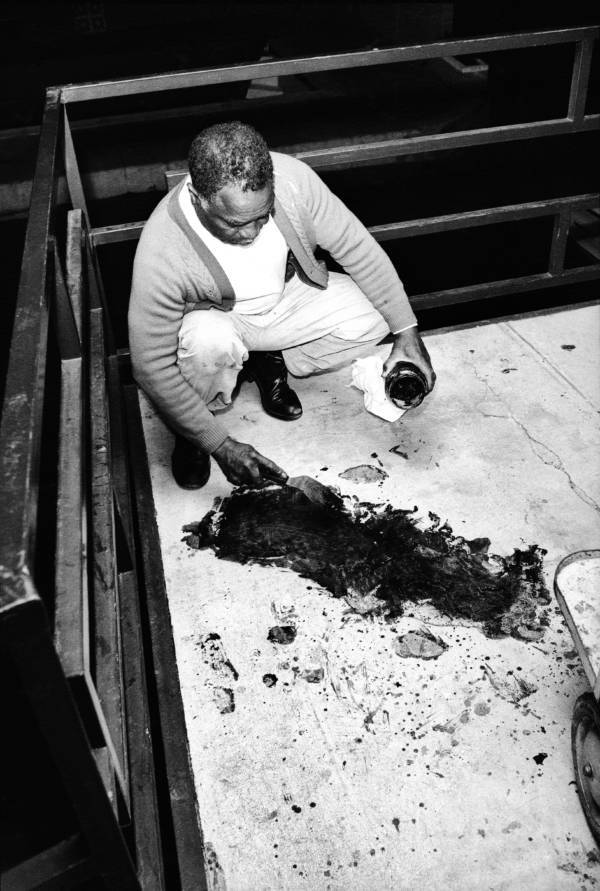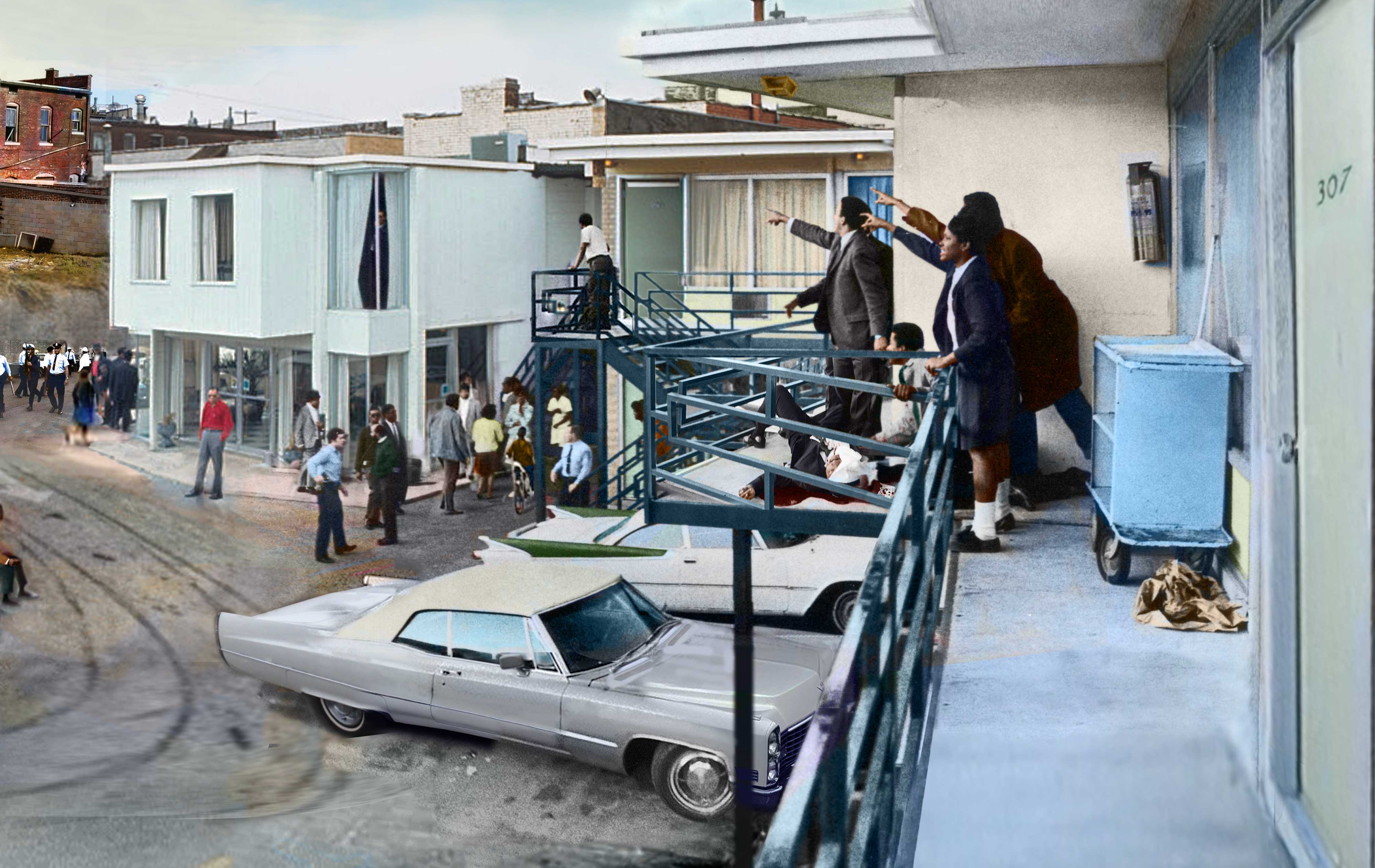When Did MLK Die? A Deep Dive Into The Life And Legacy Of Martin Luther King Jr.
When we talk about Martin Luther King Jr., we’re not just discussing a historical figure—we’re talking about a man who changed the world. The question "when did MLK die" is more than just a timeline; it’s a moment that marked the end of an era and the beginning of a legacy. His assassination on April 4, 1968, shocked the nation and left a void that no one could fill. But before we dive into the details, let’s take a moment to reflect on why this matters. MLK wasn’t just a civil rights leader—he was a beacon of hope, a symbol of justice, and a voice for the voiceless.
His death wasn’t just a tragedy—it was a turning point in American history. It forced the nation to confront its own demons and question the values it stood for. But even in death, MLK’s message of equality, love, and nonviolence lived on. The world lost a great man that day, but his dream lives on in the hearts of millions around the globe.
So, let’s explore this pivotal moment in history. We’ll uncover the facts, the myths, and the lasting impact of MLK’s death. This isn’t just a history lesson—it’s a journey into the heart of a movement that changed the world. Let’s get started, shall we?
Table of Contents
Biography of Martin Luther King Jr.
The Assassination: What Happened?
Conclusion: What Can We Learn?
Biography of Martin Luther King Jr.
Before we dive into the specifics of when MLK died, let’s take a moment to get to know the man behind the movement. Martin Luther King Jr. was born on January 15, 1929, in Atlanta, Georgia. He grew up in a world where segregation was the norm, but he refused to accept it. Here’s a quick look at some key facts about his life:
Early Life and Education
MLK was the son of a Baptist minister and grew up in a close-knit family. He was a gifted student who skipped grades in high school and entered Morehouse College at the age of 15. He went on to earn a degree in sociology and later pursued theology, earning a Ph.D. from Boston University.
Civil Rights Activism
MLK’s activism began in the 1950s, when he became a leader in the Montgomery Bus Boycott. This was just the start of his journey. He went on to organize countless protests, marches, and campaigns, all rooted in the philosophy of nonviolence. His famous "I Have a Dream" speech, delivered during the March on Washington in 1963, remains one of the most iconic moments in American history.
Biodata of Martin Luther King Jr.
| Full Name | Martin Luther King Jr. |
|---|---|
| Date of Birth | January 15, 1929 |
| Place of Birth | Atlanta, Georgia |
| Education | Morehouse College, Crozer Theological Seminary, Boston University |
| Occupation | Civil Rights Leader, Baptist Minister |
| Date of Death | April 4, 1968 |
Timeline: When Did MLK Die?
Now, let’s address the question that brought you here: when did MLK die? The answer is April 4, 1968. But what led up to that moment? MLK was in Memphis, Tennessee, to support striking sanitation workers. On the evening of April 4, he stepped out onto the balcony of the Lorraine Motel when he was shot by an assassin’s bullet. He was rushed to a nearby hospital but was pronounced dead shortly after.
Key Events Leading to His Death
- 1967: MLK speaks out against the Vietnam War, alienating some of his allies.
- March 1968: He travels to Memphis to support sanitation workers striking for better wages and working conditions.
- April 3, 1968: He delivers his famous "I’ve Been to the Mountaintop" speech, which some believe was prophetic.
- April 4, 1968: MLK is assassinated on the balcony of the Lorraine Motel.
The Assassination: What Happened?
The assassination of MLK was a shock to the nation. At 6:01 PM on April 4, 1968, a single bullet struck him in the jaw, severing his spinal cord. The shooter was James Earl Ray, a fugitive who was captured two months later in London. Ray initially confessed to the crime but later recanted, claiming he was part of a conspiracy.
What We Know About the Shooting
- MLK was standing on the balcony of the Lorraine Motel when he was shot.
- The bullet traveled at high velocity and caused severe damage.
- Witnesses rushed him to St. Joseph’s Hospital, where he was pronounced dead at 7:05 PM.
Why Was MLK Assassinated?
The reasons behind MLK’s assassination are complex. Some believe it was a lone act by James Earl Ray, while others suspect a larger conspiracy involving government agencies. MLK had become increasingly vocal about issues beyond civil rights, including poverty and the Vietnam War. This made him a target for those who opposed his vision of a more just society.
Conspiracy Theories
- Some believe the FBI was involved, as they had been monitoring MLK for years.
- Others point to the CIA or local law enforcement as possible culprits.
- James Earl Ray himself claimed he was part of a larger operation, though evidence remains inconclusive.
The Impact of MLK's Death
MLK’s death sent shockwaves through the nation. Riots erupted in cities across America as people mourned the loss of a leader who had inspired so many. But the impact went beyond the immediate aftermath. His death galvanized the civil rights movement and led to the passage of important legislation, including the Fair Housing Act of 1968.
How the Nation Reacted
- Riots broke out in over 100 cities, including Washington D.C., Baltimore, and Chicago.
- President Lyndon B. Johnson declared a national day of mourning.
- Many organizations and individuals redoubled their efforts to continue MLK’s work.
His Legacy Lives On
Despite his untimely death, MLK’s legacy endures. His message of nonviolence, equality, and justice continues to inspire people around the world. His birthday is celebrated as a national holiday in the United States, and his name is synonymous with the fight for civil rights.
How MLK’s Ideas Continue to Shape Society
- His philosophy of nonviolence has influenced movements worldwide.
- His speeches and writings remain relevant today, addressing issues like systemic racism and economic inequality.
- Organizations like the Southern Christian Leadership Conference (SCLC) continue to carry on his work.
Famous MLK Quotes
MLK was a master orator, and his words continue to resonate with people today. Here are a few of his most famous quotes:
- “Injustice anywhere is a threat to justice everywhere.”
- “Darkness cannot drive out darkness; only light can do that. Hate cannot drive out hate; only love can do that.”
- “The time is always right to do what is right.”
Key Data and Statistics
Here are some important statistics related to MLK and his impact:
- MLK delivered over 2,500 speeches during his lifetime.
- He was arrested 29 times for his activism.
- More than 1,000 streets in the U.S. are named after him.
Sources and References
This article draws on a variety of sources to provide an accurate and comprehensive look at MLK’s life and death. Some of the key references include:
- The King Center: A resource dedicated to preserving MLK’s legacy.
- Stanford University’s Martin Luther King Jr. Research and Education Institute.
- Various historical archives and government documents.
Conclusion: What Can We Learn?
When we ask "when did MLK die," we’re not just asking about a date—we’re asking about the legacy of a man who changed the world. MLK’s death was a tragedy, but his message lives on. He taught us that change is possible, that love can overcome hate, and that justice is worth fighting for.
So, what can we do to honor his memory? We can continue to fight for the causes he believed in. We can speak out against injustice. We can work to create a more equitable society. And we can never forget the lessons he taught us.
Let me know in the comments what MLK’s legacy means to you. Share this article with your friends and family. Together, we can keep his dream alive. Because as MLK once said, “We must accept finite disappointment, but never lose infinite hope.”
Best Shampoo And Conditioner For Dry Hair: Your Ultimate Guide To Hydrated Locks
13th March Zodiac: Discover The Secrets Of Your Astrological Sign
Miley Cyrus Mom: The Story Of Tish Cyrus That You Need To Know

12 Photos Of The Despair And Chaos Of Martin Luther King Jr.'s

Mlk Timeline Freebie Martin Luther King Timeline Mlk vrogue.co

Gordon Belray The Assassination of Martin Luther King